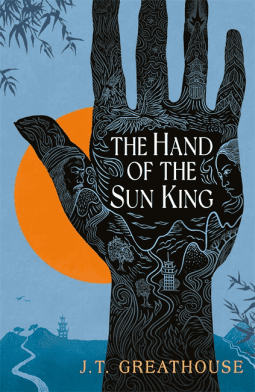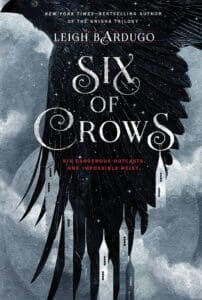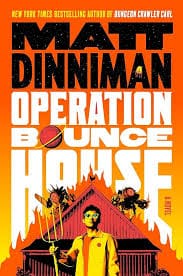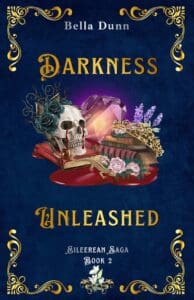
Amazon
Barnes and Nobles
Book Depository
Broken Binding
Fantastic Fiction
Gollancz Online Store
Goodreads
Kobo
Waterstones
Rating: 10/10
Synopsis
‘Sublime prose and pin-sharp characterisation combine to produce a captivating epic of conflicted loyalties and dangerous ambition’ Anthony Ryan, New York Times bestselling author
‘Brilliantly told and immediately engrossing, filled with magic, mistakes, and their merciless consequences’ Andrea Stewart, author of The Bone Shard Daughter
‘Hands down the best debut of the year. Scratch that; this is one of the best debuts I’ve ever read’ Novel Notions
‘A great coming of age story about a foolish boy who seeks to unravel the secrets of magic and maybe do something good in the process. I absolutely loved it’ Nick Martell
My name is Wen Alder. My name is Foolish Cur.
All my life, I have been torn between two legacies: that of my father, whose roots trace back to the right hand of the Emperor. That of my mother’s family, who reject the oppressive Empire and embrace the resistance.
I can choose between them – between protecting my family, or protecting my people – or I can search out a better path . . . a magical path, filled with secrets, unbound by empire or resistance, which could shake my world to its very foundation.
But my search for freedom will entangle me in a war between the gods themselves . . .
The first book in the Pact and Pattern series. Fans of Robin Hobb, Brandon Sanderson’s Mistborn and R.F. Kuang’s The Poppy War will love the magic running through every page.
Review
Thank you to Gollancz and Will for allowing me a ARC to provide my thoughts. All thoughts are my mine.
The story takes on an older Wen Alder/Foolish Cur, reflecting on his past. He wants to learn magic without the limitations of his Nayani heritage and the Siennese disdain for magic. His grandmother is a central character that wants him to revolt against the Empire. While his mother doesn’t want that. I shall call him Foolish Cur because that is an apt name for many of the decisions he makes in the book’s course, which aren’t significant. He is competent, yes, but he’s also misguided at the same time. Foolish Cur wants his way, a third way where he’s free from all the burdens that are placed by his background. He’s torn between two heritages, and that’s what eats at the core of his soul in this book. How can one man break away from this? On the one hand, the Siennese torture and kill those who practice magic and yet make use of it in battle. On the other, the Siennese recently conquered the Nayani, and they have been rebelling against them. Foolish Cur could have been a double agent, which he tries too, but fails at it miserably. This entire book is about a young man trying to discover who he is and what he wants.
I experienced this Foolish Cur becoming the Hand of the Emperor of Sien through strict tutoring by his tutor, Koro. Foolish Cur, being the son of a wealthy merchant, exchanged tutors often. He is often selfish, complacent, and arrogant. But when you’re young, you’re bound to be that way. You don’t have the maturity of age at that point. At some points in the story, I felt Foolish Cur was often reacting to events rather than being actively involved in the story. At other points, the pacing slowed down in some areas. I sent him to the city of An-Zabat and experienced an adventure that one could say was exhilarating. He fell in love with Atar, whom I liked as a character and I want to see more of her in book 2. There are deeper truths hidden, and as you read each chapter, you learn a degree of what this world is really about. It is a cruel world with gods that aren’t benevolent. More evil is what I would describe to them.
There is plenty of action with Gods, there is plenty of action in battle, but what has to be commended is making an area of politics I find boring in fantasy very interesting. Economics. Or, the Ministry of Finance. Often in fantasy, you do not see much elaboration of a role like this. In it, when Foolish Cur becomes the Minister of Trade and Finance in the city of An-Zabat, he has to oversee a lot of decisions but he also realises that most of his decisions make no impact when the older bureaucracy don’t want him to reform the already deteriorating situation that is happening within the city. At other points, there are many so interesting characters in this novel. But for most of them, I didn’t feel too attached to them as I would have wanted. They were there as well rounded-developed characters, but sometimes I felt the narrator was too distant from them sometimes.
I found an example to colonialism, and one subject I studied was French Colonialism at University, and the conclusion I can draw from that is there was no doubt good-intentioned French Colonial Governors that wanted to make things better for the Algerians and the Senegalese subjects that were considered ‘citizens’ of France. But the bureaucracy that wanted corruption to fester often stopped them. For example, An-Zabat, the Sienese occupation of An-Zabat is divided into Siennese Settlers and An-Zabti Subjects. The Siennese settlers lived in absolute luxury and diverted wealth from the city’s people to the pockets of their merchants. In the same way, in French Colonial Algeria, the European settlers were at the top of the food chain and the Algerians were at the bottom. Many of the An-Zabti people are forced to live in slums, even rocky areas, I imagine. This has already developed a powerful breed of resentment of An-Zabti people, although I would have wanted the author to show those Pro-Sien An-Zabti people that do work with the Sienese occupiers show just how hypocritical it was. And Foolish Cur has to deal with these in a situation of scenarios.
The last part I will note is that I enjoyed the mixing of East Asian Culture with Middle East influences. Trade between the Medieval Islamic World and China often bloomed through the Silk Road, and the Indian Ocean, which included South-East Asia. What I see is a sort of Medieval European World that is mixed with Medieval China/Korea and incorporating perhaps the Sultanate of Zanzibar in the end? I often prefer fantasy that expands from the realm of Medieval Europe and explores the bigger world, because there is history out there that is under-neglected and ignored. So I appreciate the fact the author made me go through the city streets of An-Zabti, through the bazaars, and I got to see camels in this book. Camels. We need more camels in fantasy.
Overall, the book was well written, well-paced, and thoroughly enjoyable to read. I loved it. Fantastic writing, and it’s a 10/10 from me. There are a ton of interesting characters that you will love, and it’s well done.




Leave a Reply